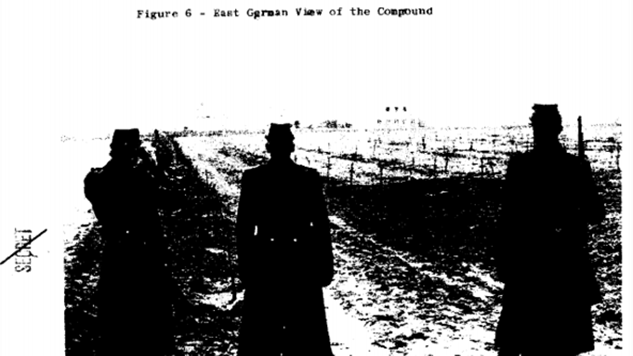JFK, UFOs, Guantanamo and More: CIA Releases an Unprecedented Number of Declassified Documents after Lawsuit
Photo by CIA
The CIA posted almost 800,000 declassified files to its Electronic Reading Room last week, releasing a total of 12 million pages to the public’s fingertips.
Declassification of 25-year-old records is mandated by a series of Executive Orders that began with President Bill Clinton in 1995. Each president since has amended and replaced preceding orders with the intention of declassifying documents with historic value from the past quarter century and beyond. In 2000, the CIA introduced the CIA Records Search Tool (CREST) system to the National Archives Records Administration in Maryland. While some documents were posted on the CIA website, they could only be accessed at this specific location. Journalists, historians, and other interested parties would have to travel there and print pages from one of four computers—as policy does not allow the use of a thumb drive or camera.
Many of these documents have already been released through public records requests from nonprofits, public officials, attorneys, and curious Americans.
“Access to this historically significant collection is no longer limited by geography. The American public can access these documents from the comfort of their homes,” said CIA Director of Information Management Joseph Lambert, in a statement.
MuckRock, is an organization that provides support for anyone interested in filing government public records requests In 2014, MuckRock filed a Freedom of Information Act (FOIA) lawsuit to gain access to the entire CREST database, represented by Kel McClanahan of National Security Counselors.
The CIA had argued that restrictions were required for public access to declassified records for security reasons. In 2015, the CIA said it would need six years to release all documents. This fall, the CIA’s Litigation Information Review Office agreed to post the documents at the beginning of 2017.
Michael Morisy is the co-founder of Muckrock, and told Paste in an interview, “People have been going after this piecemeal and that creates an expense. We want the government to be held accountable by the people. This had been declassified and reviewed for security risks.”
What Is in the Documents?
The CREST collection contains files from the Vietnam War, Berlin Tunnel Project, post-9/11 interrogation techniques, 40,000 pages from Secretary of State Henry Kissinger, and documents on military issues. You can even look into what the government knew about aliens back when rumors about Roswell began floating around.
In one memo from the Office of Scientific Intelligence to then director Walter Bedell Smith of the CIA, it is determined that “flying saucers” pose “national security implications.” Another outline for a panel presentation lists the locations of recent UFO sightings.
A hundred pages of formerly top secret information on the famous Berlin Tunnel is published. The tunnel was a joint operation between the CIA and British Secret Intelligence Service to tap phone calls from the Soviet embassy and headquarters near East Berlin. The effort yielded great intel, but was revealed by a mole to the Soviets, and shut down in 1956.

Construction of the Berlin Tunnel
The CIA Had a…Unique Sense of Humor
Here’s a list of Soviet jokes the agency prepared for its deputy director. In one, they joke about the KGB headquarters burning down.


Two MuckRock users figured out that President Reagan used one of these in his infamous cache of jokes he claimed to be from the Soviets themselves, about Russia.
In another file, you can see a translation of a German recipe for invisible ink from French to English. The formula was originally declassified in 2011.

What Was JFK Looking at during the Cold War?
You can search the President’s Daily Intelligence Checklist from the Kennedy through Ford administrations, and get completely lost in the data. For instance, on Dec. 2, 1961, President Kennedy was given an intelligence briefing about “further moves to forestall the El Salvador coup,” and intel on how American Broadcasting Corporation (ABC) was going to most likely have an interview with Khrushchev, with James Raggerty as the interviewer. There were also reports of the Chinese financing “communist operations in South Vietnam.” Kennedy likely received the Chinese intel from a team he sent to Southern Vietnam to report back on conditions. He would end up increasing the troop level in Vietnam to just under 9,000 troops by 1962.
If you want to look even further back, documents from the CIA’s predecessor—the Office of Strategic Services (OSS)—have been added online. A late night search revealed that Roosevelt administration officials were aware of Hitler’s persecution of Jews as early as 1936.
New Intelligence on Guantanamo Bay Prisoners
A more recent file includes heavily redacted information about the interrogation techniques the CIA used on Guantanamo Bay prisoner Abu Zubaydah. There is one mention of an approval for waterboarding. Tapes of the interrogations were later destroyed by the CIA in 2005.
Although many of the documents in the CIA reading room were previously released, they often didn’t make it beyond those four computers in Maryland. MuckRock sees this as a success. Morisy explained, “This information belongs to the public, and is, but it deserves to be fully public. We’re glad they have fully complied with a law from 1995.”
Sarah Betancourt is a Massachusetts-based journalist who writes about health, public policy, business, and environment. Follow her on Twitter.